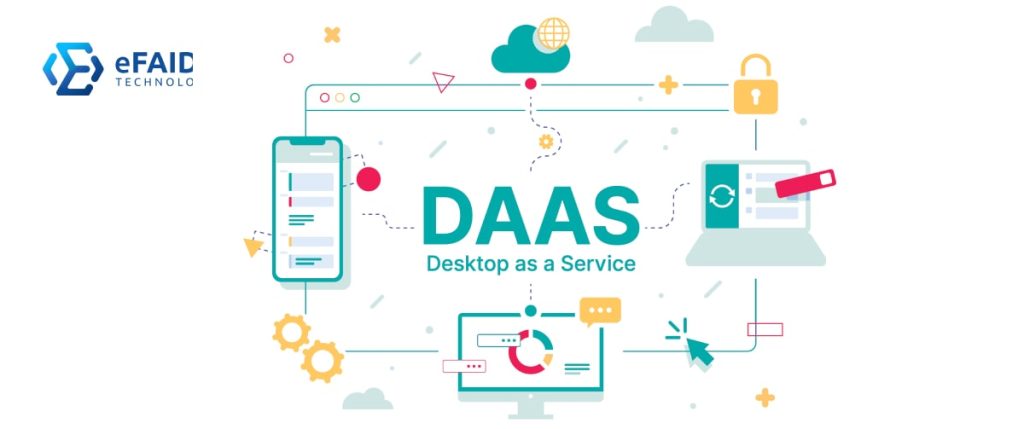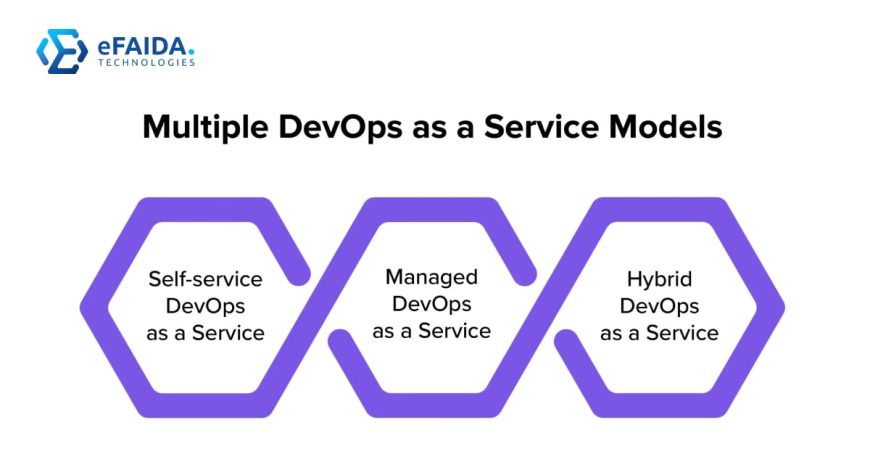Introduction
The Fourth Industrial Revolution has brought emerging trends of operational dynamics for any organization to succeed. A popular methodology that records a synergy between development and operations departments is commonly referred to as DevOps. Nevertheless, there are sometimes important challenges in the technical times of implementing an extensive DevOps platform, hence the emergence of DevOps as a Service (DaaS).
The blog that was read is focused on the DaaS ecosystem and explains the realities behind many misconceptions. In this section, we will discuss the pros and cons of the applications of DaaS to your business and several asked questions that aim to help you decide whether DaaS is right for your organization.
Unveiling the Power of DevOps as a Service (DaaS)
DaaS stands for DevOps as a Service, and this could be defined as a managed service model that provides all the tools, inabilities, and talent that may be required by an organization to adopt DevOps practices into the systems being developed within the organization. In essence, it means that instead of building, maintaining, and updating the infrastructure and(or) toolchains for DevOps, firms can delegate these tasks to third parties who then also bear the responsibility for continuously improving and adapting them.
Here’s a breakdown of what DaaS typically offers:
- DevOps Tools: DevOps as a Service also includes leveled and pre-integrated tool stacks that have configuration management tools, IaaS/PaaS, CI/CD, Integrated logger, and security tools.
- Infrastructure Management: This means that DaaS providers assume the responsibilities for the underlying IT architecture, e.g., servers, storage, and networks, which are not concerns for your team.
- DevOps Expertise: In addition, DaaS can provide certified DevOps experts who can advise you on the best practices to adopt, help to solve issues that you may be experiencing in your DevOps process, and optimize the DevOps process in your organization.
Demystifying DaaS:
While DaaS offers a compelling value proposition, there are several myths surrounding it that need to be addressed:
- Myth 1: DaaS as the Answer to DevOps: DevOps is a culture transition first and foremost, but it is also a technological shift. As with any technological solution, DaaS offers the means for developing the necessary applications and constructing the required frameworks, but does not guarantee their accomplishment in any way; this work entails commitment from top management and a move from antagonistic Dev and Ops divisions toward cooperation.
- Myth 2: DevOps as a Service (DaaS) is Not a Substitute for Internal Experience: While DaaS is capable of providing access to DevOps personnel, it does not provide a perfect solution that allows an organization to ignore the development of this crucial skill. To be clear again, your team will still have to get an understanding of DevOps concepts and the ability to interact with the tools that are going to be used.
- Myth 3: DaaS Puts You in a Vendor’s Pocket: While getting data to work is a major strength of many DaaS solutions, they generally come bundled with open-source tools and marry themselves to an existing infrastructure. Seek such options that are flexible and avoid being trapped in a fixed partnership with a provider.
- Myth 4: Some critics have been quick to point out that DaaS is only for large enterprises when in fact it can be of great benefit to companies of all types and sizes. DaaS is very useful for emerging businesses or new business startups; they can use such services to get access to professional tools and facilities without investing a lot initially.
- Myth 5: DaaS is Expensive: Hassles associated with DaaS are coupled with cost but overall the cost may be much higher than maintaining an in-house DevOps infrastructure. I have highlighted a few areas that should be taken into consideration based on hardware, software, personnel, and overheads for the sustained use of the technology.

Unlocking the Potential: Benefits and Considerations of DaaS
By dispelling the myths, we can see the real benefits DaaS offers:
- Faster Time to Market: This is because DaaS helps accelerate the development and delivery of features, meaning that you can issue updates and new applications faster.
- Improved Software Quality: DaaS also encourages the usage of Integrated and tested solutions which are released more frequently, and are of better quality than the older traditional way.
- Increased Efficiency: This is because DaaS automates many of the daily tasks and management of the underlying infrastructure thus reducing the time and effort required from your team allowing them to focus on more innovative solutions.
- Enhanced Scalability: DaaS can be flexibly adapted to your growing needs as you’re expanding the DevOps environment in your company.
- Reduced Costs: The fact that with DaaS one doesn’t have to build and maintain the environment to support DevOps may help in cutting costs significantly.
However, there are also some considerations to keep in mind before adopting DaaS:
- Security Concerns: For security reasons, make sure that the DaaS provider implements adequate levels of security, which are suitable for your organization.
- Integration Challenges: Assess the potential of the DaaS solution and its readiness to fit your current environment and software surroundings.
- Vendor Lock-in: Select the DaaS supplier that uses open standards that can be integrated across multiple systems, and it is advisable to avoid turning into a prisoner of one particular supplier.
- Change Management: The effective implementation of DaaS also entails the necessity of change management processes aimed at addressing some aspects such as team acceptance, and change in organizational culture.
Conclusion
Now let me briefly discuss DevOps as a Service, which could be defined as a powerful solution that will allow organizations that are willing to build efficient software development models for delivering very efficient applications to the customers, to find the solution with the help of the bundles of DevOps services. It has come with myths which, once you decode, help you in making a rational decision regarding the provision of DaaS.
It is important to support all of the above with diligent planning, execution when choosing a vendor, and willingness to onboard a new and effective communication style into your organization’s various teams. With the usage of DaaS and its tools expertise and flexibility, you can enjoy increased speed to market, better quality of software, and provide yourself the competitive edge that is often needed to compete in today’s world of technology.
FAQs: Frequently Asked Questions on DevOps as a Service
Q1. How much does DaaS cost?
The cost of DaaS may differ, depending on the type of provider you choose, your requirements, and the scope of the project. It’s mostly available with pay-per-use plans, which means that it does not have to be expensive for any business scale.
Q2. Can I integrate DaaS with my existing tools?
Also, check for the available toolsets that the DaaS provider can open and integrate with common development and collaboration platforms. This means that it blends rather well with your existing environment and does not disrupt the usual course of work.
Q3. How do I ensure security with DaaS?
Security should also be given a closer look and it is advised to pick a DaaS provider with a good security record and compliance certifications. Assess potential security weaknesses as to their access control measures, data encryption, and their preparedness to address disasters on the information they store.
Q4. What are the key metrics to measure the success of DaaS implementation?
Specific measures to be included in the tracking system are lead time for change, deployment frequency, defects escaped, and application availability.
Call to Action:
Excited to understand how DoAAS can be of benefit to your business? eFAIDA Technologies If you need help in deciding which Service would best address your requirements, do not hesitate to contact our team of specialists to assist you in identifying the perfect solution for your DevOps needs.




